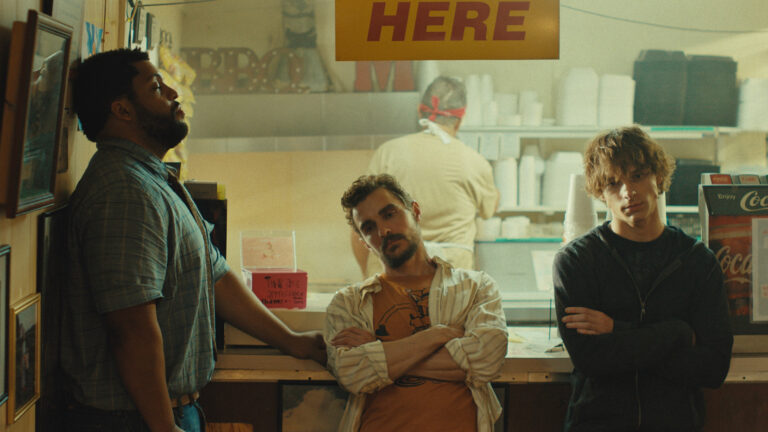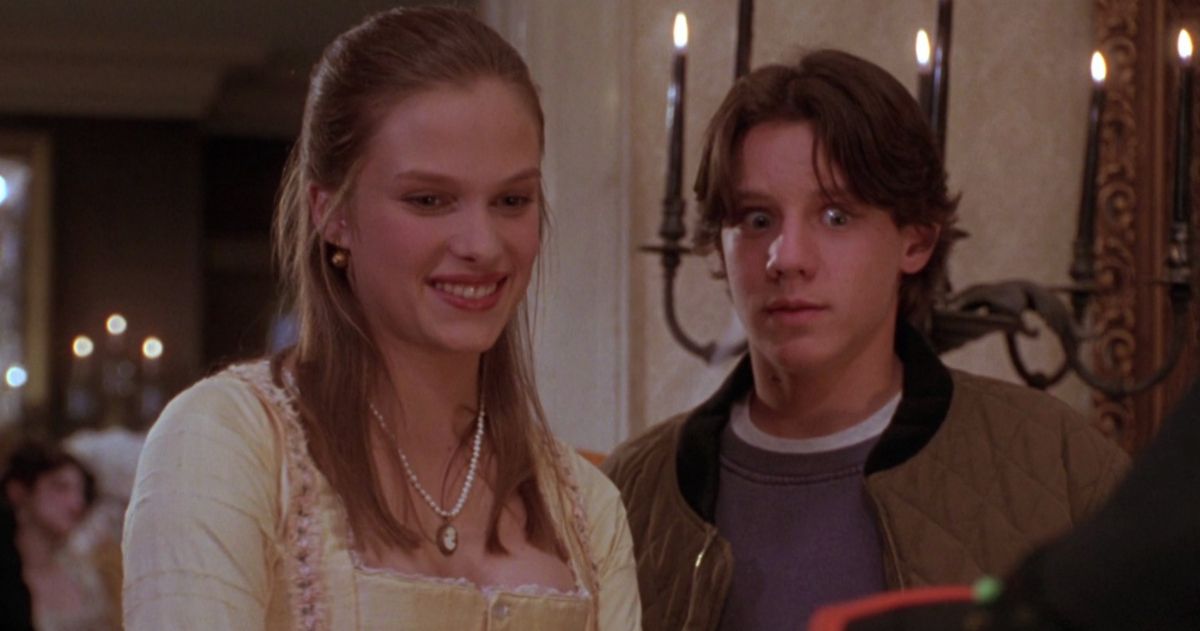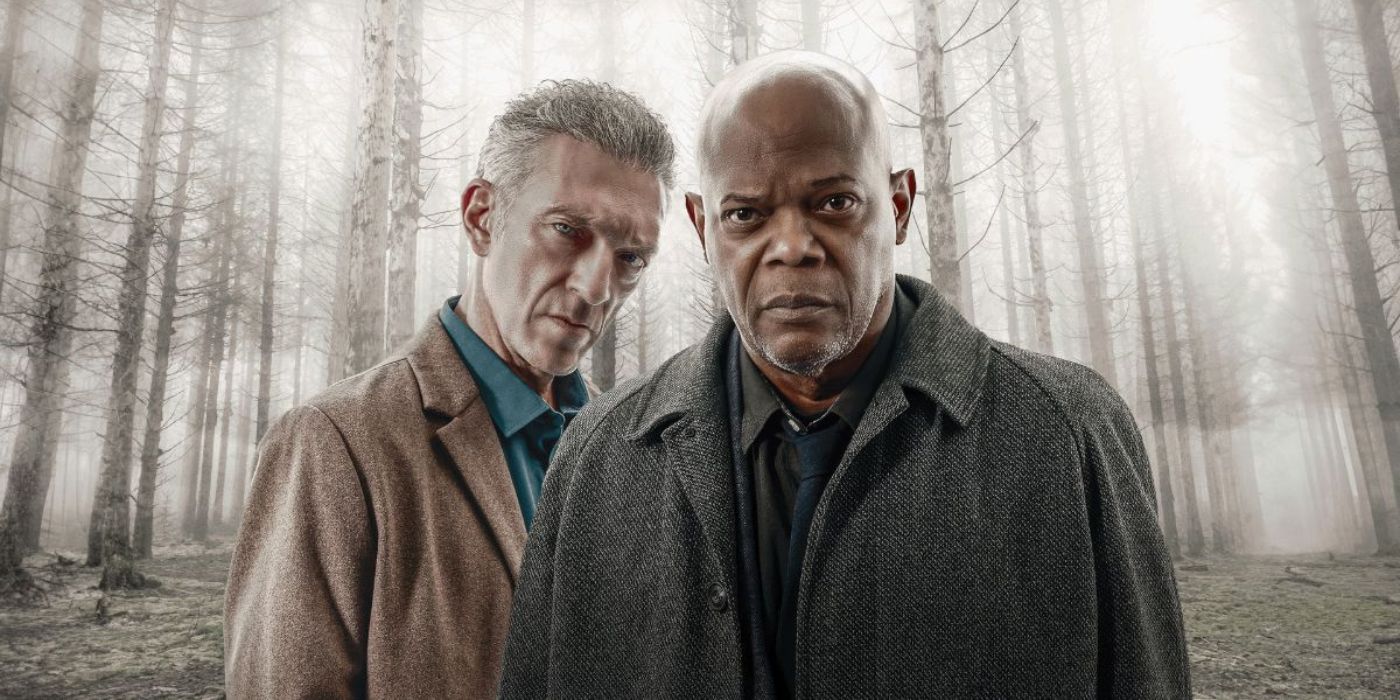Lacôte uses Roman’s story to explain the historical cycle of violence, and how that cycle has affected his country. Lacôte also adds another dimension to Roman’s storytelling by making the MACA prisoners into Roman’s actors. Like a Greek Chorus, they interject Roman’s oration to perform songs dedicated to Zama. They cheer or jeer Roman’s narrative twists (we know Roman knew Zama, but we can’t tell if he’s telling us fact or fiction). At one point, Roman describes Zama as a scorpion, and the prisoners band together to intimate a scorpion. The inmates aren’t searching for truth in their storyteller. They know his tale is nonsensical. Nevertheless, there’s magic in letting a story overtake your mind, body, and spirit. It’s that disbelief from an admittedly unreliable narrator that gives these men freedom beyond the jailhouse walls.
The way Lacôte uses Roman’s yarn to not only mix ancient folklore with modern mythmaking, but also theatrical song and dance, is a tremendous feat of filmmaking. Lacôte explored these topics in his earlier film “Run,” but here they’re pushed to more elaborate parameters. He is also buoyed by Tobie Marier-Robitaille’s evocative cinematography, which gracefully tracks each era’s unique mood, from the prison’s urgent orange lighting, to the warm purple regality of the period piece section, to the bright flatness of the present-day Lawless Quarter. Marier-Robitaille captures how the amber lamp glistening off Roman’s chest corresponds to the ticking red moon, functioning like the film’s major hidden character.
The trick to “Night of the Kings” is also how Lacôte protects his ever-unfolding story from collapsing into meandering turns, or digressions, to maintain a lucid pace. “Night of the Kings” never drags during its breezy 93-minutes partly because the characters are mere set pieces. Take Silence (Denis Lavant), an eccentric coot with a rooster perched on his shoulder, whose sole role is to warn Roman. Or the ostensible patsy, the transgender woman prisoner Sexy (Gbazi Yves Landry). The flat characters would blunt most films, but considering the intricate nature of Lacôte’s world building, the underdevelopment is actually an asset that allows the sprawling film space to breathe. As does Koné’s acute performance.
With “Night of the Kings” Lacôte collapses the bounds between eras, and dissolves myth and reality, performance and remembrance, into one whole. It’s an assured, energetic piece of epic filmmaking, one that celebrates how storytelling, oration, and folklore teach us about our past so we might change our present.
You can view the original article HERE.


































